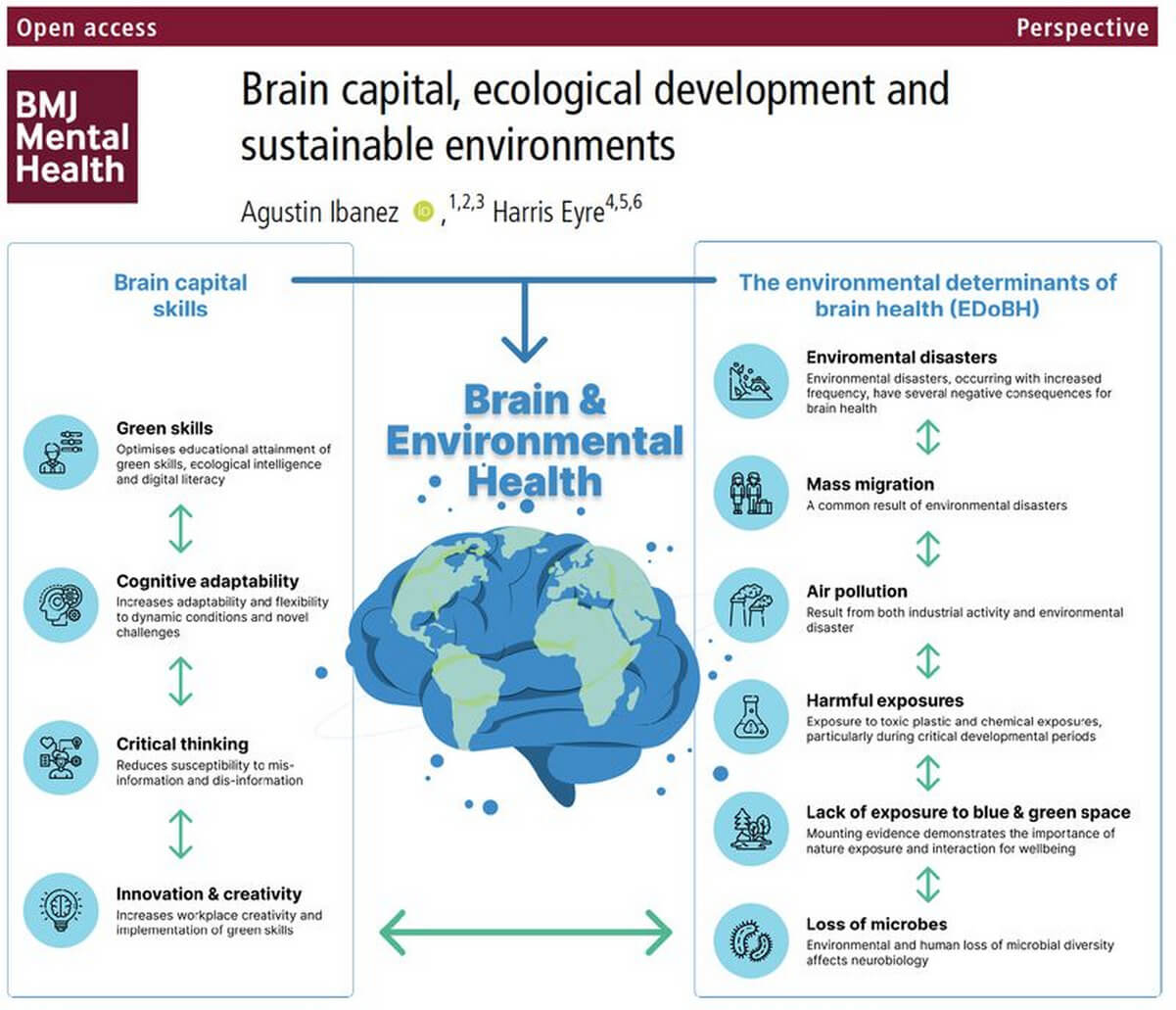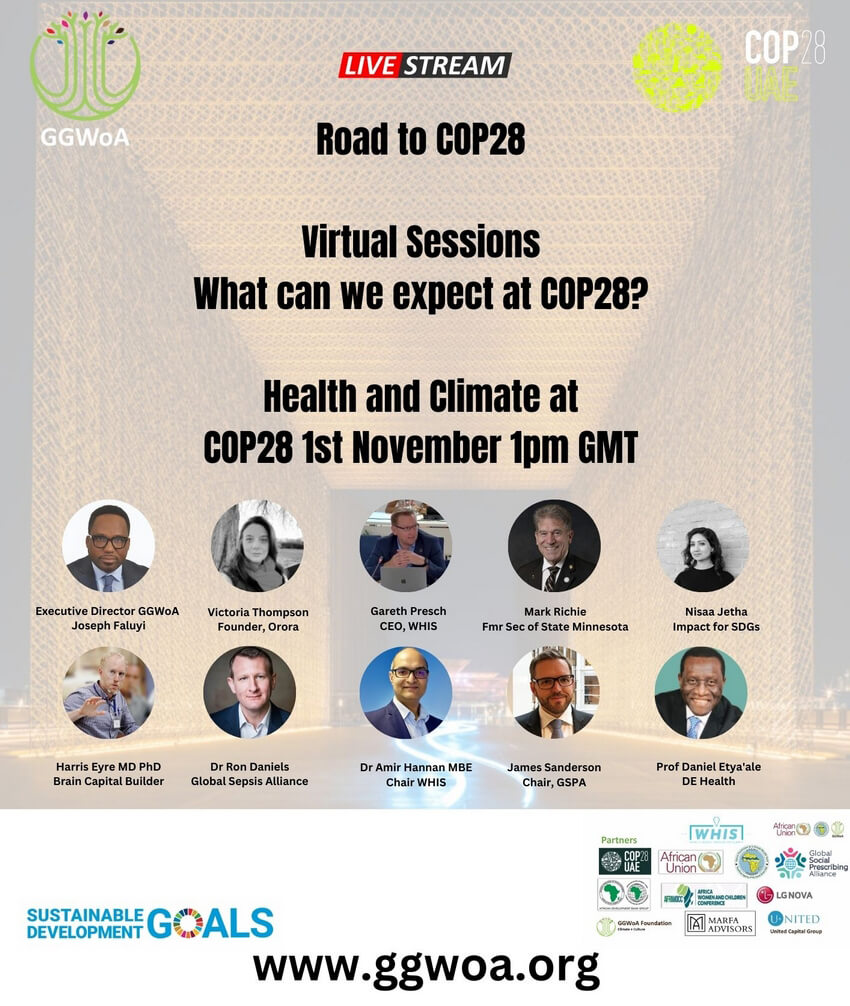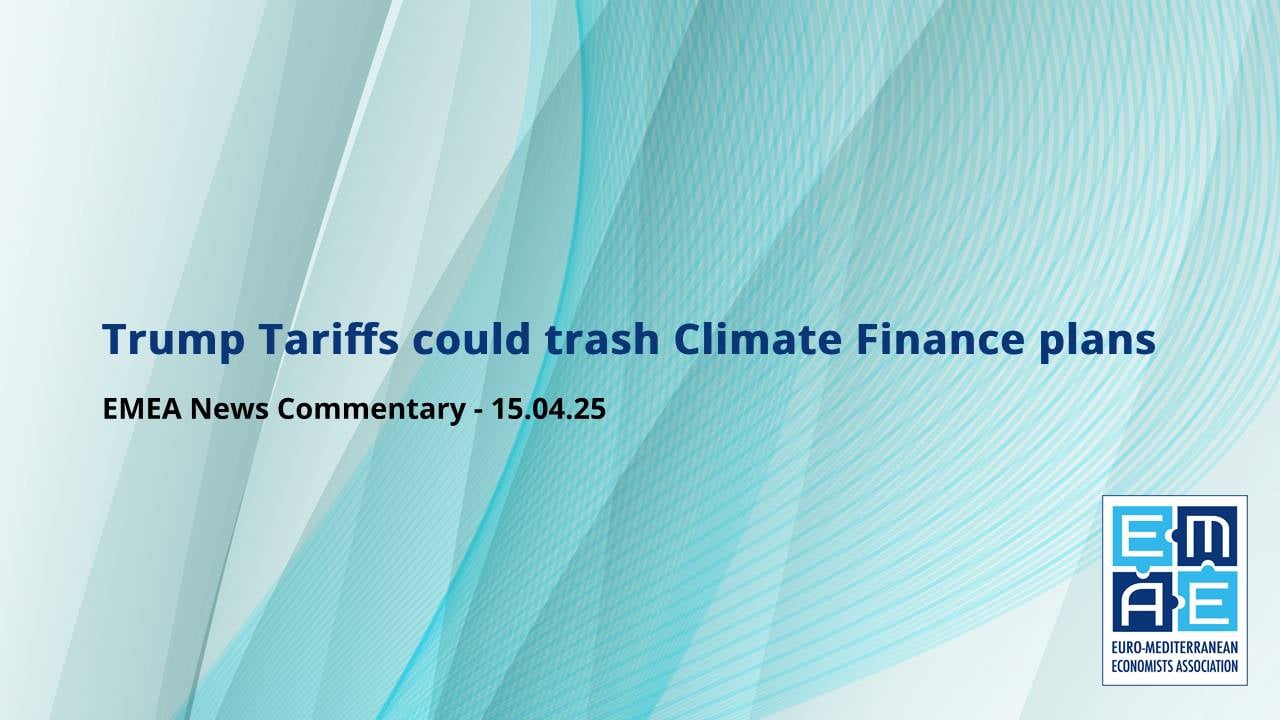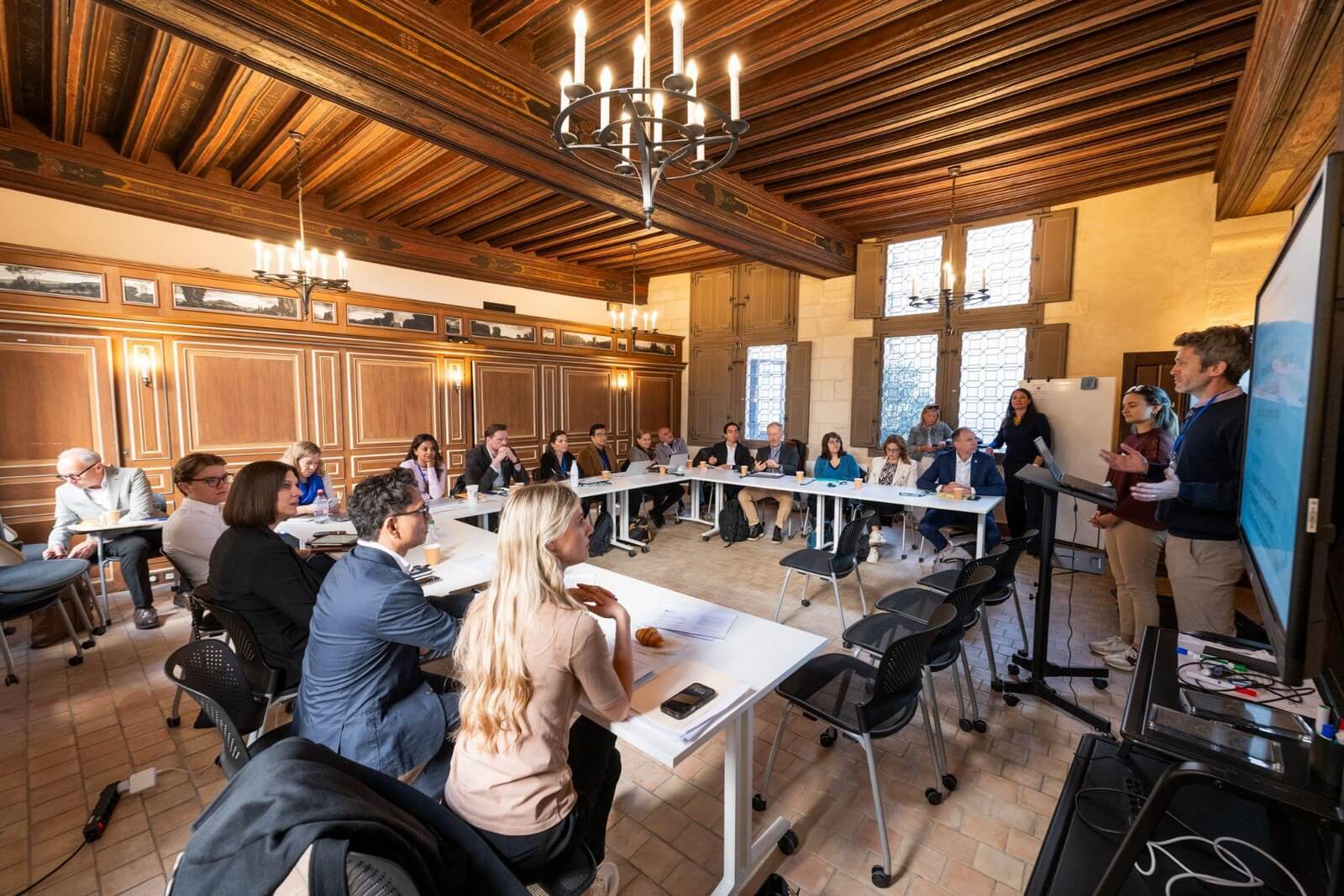Barcelona, Spain, October 19th, 2023 – The upcoming COP28 UN Climate Change Conference in Dubai is poised to bring attention to an overlooked aspect of sustainability: brain capital. A new paper published by EMEA advisor and Rice University Baker Institute for Public Policy Fellow, Dr Harris Eyre, in the British Medical Journal titled, “Brain capital, ecological development and sustainable environments”, sheds light on the crucial role mental health and cognitive capacity play in addressing the climate crisis. The paper emphasizes that a strong foundation of mental well-being and cognitive function is essential for individuals, communities, and nations to effectively respond to the climate emergency.
The concept of brain capital highlights the necessity of investing in brain and mental health support, education, and cognitive development as a fundamental strategy for tackling climate change. Brain health impacts related to climate change, such as anxiety, stress, and trauma, can hinder sustainable decision-making and action. Therefore, prioritizing brain and mental health initiatives and fostering resilience is key to enhancing the adaptive capacity of individuals and societies facing the challenges posed by climate change.
As the COP28 conference approaches, global leaders and policymakers are expected to integrate the principles outlined in this paper into their climate and sustainability strategies. Acknowledging and addressing brain capital can drive a more comprehensive and effective approach to climate action, ultimately fostering a sustainable and resilient future for all.
Gareth Presch, the Founder and CEO of the World Health Innovation Summit (WHIS), noted: “As COP28 approaches, we have the opportunity to focus on new models of preventative healthcare that support climate action, strengthen health services, improve people’s health and wellbeing, create new and meaningful jobs while delivering the sustainable development goals.” WHIS is holding an event at COP28 exclusively on green brain capital in collaboration with the Great Green Wall of Africa Foundation. Event details are forthcoming here.
WHIS is holding a webinar Road to COP28 on the 1st of November at 1 pm GMT. Dr Eyre is an invited speaker along with other global experts. To view see here and for LinkedIn livestream please see here
Green brain capital places a central emphasis on the brain to deliver a healthy and sustainable environment and, vice versa, on a green environment to promote and safeguard brain health. These points were also made in a recent Rice University Baker Institute for Public Policy Research Paper co-authored by Dr Eyre, EMEA President and Founder, Rym Ayadi, and global colleagues. The environmental determinants of brain health are foundational to this model, as brain health is key to navigating the modern world and thriving. Key brain skills include green skills, creativity, adaptability, digital literacy, and ecological intelligence. Growing green brain capital will require transformations across hierarchical levels in social-ecological systems, ranging from individuals to sub-populations to entire societies.
Mohamed Salama, MD, PhD, Professor at the Institute of Global Health and Human Ecology (I-GHHE) at The American University in Cairo (AUC), noted: “Understanding the dynamic and complex nature of the green brain capital model we – through a project funded by the American University in Cairo (AUC) – are refining the model using a three stages Delphi process. International experts from different relevant areas are contributing to filtrating, prioritizing, and validating the pillars of the model.” Dr Salama is also an Atlantic Senior Fellow for Equity in Brain Health at the Global Brain Health Institute (GBHI).
Dennis Pamlin, Senior Advisor to the RISE Research Institutes of Sweden and Executive Director of the NCI Mission Innovation, provided further perspectives: “Assessments of contributions to flourishing lives based on brain/mind science provide a unique opportune to assess how different innovations contribute, or undermine, flourishing lives. It also provides an opportunity for countries, investors, cities, and other stakeholders interested in system change to assess the overall contribution to flourishing lives in different settings, such as individual cities, social media platforms, and investment portfolios. Brain/mind science provides an opportunity to pursue science-based work in two important areas, often missing in current climate work.”
In conclusion, Rym Ayadi, notes: “Brain capital is clearly key to a sustainable future. We are proud to continue on from our successes at COP27 and advance brain capital at COP28. This year has been a tremendous success with the formal publication of our Global Brain Capital Dashboard via The Brookings Institution, development of the green brain capital Delphi process, and contributions to the Science Summit of the UN General Assembly. We are now actively exploring the integration of brain capital metrics into our flagship TRIS model, a development model acting as a framework for policy responses to the medium- and long-term challenges facing our economies and societies. Finally, we are now in the process of positioning brain capital in the post-Sustainable Development Goal agenda”.






